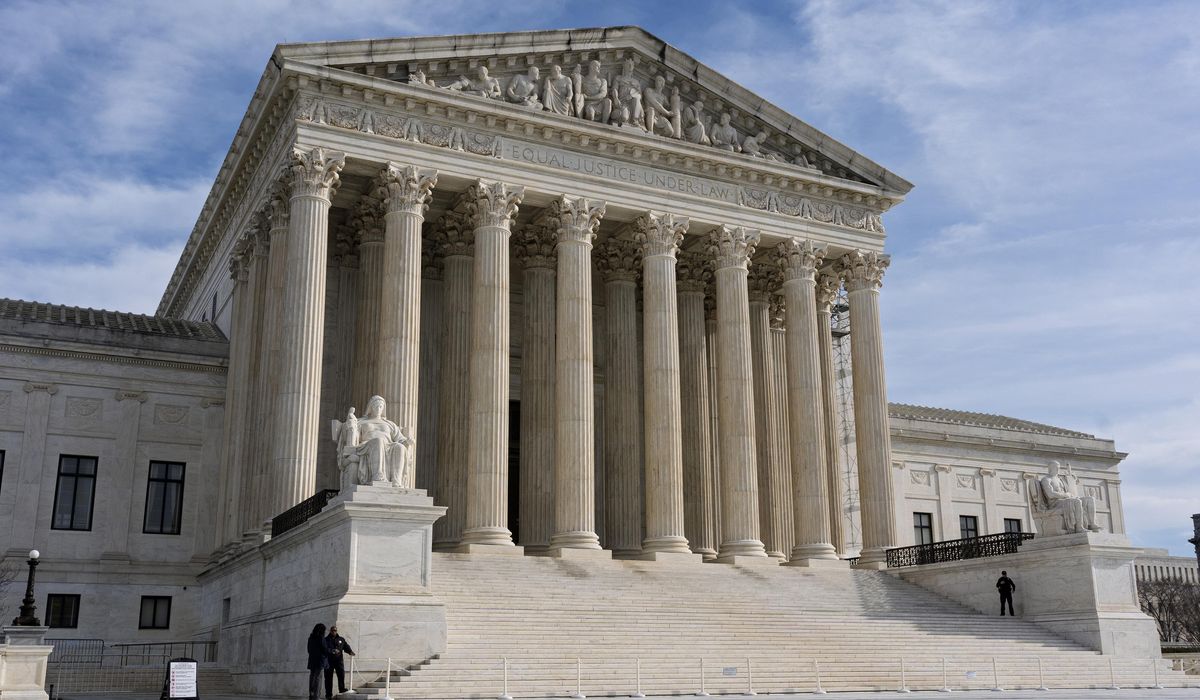


The Supreme Court will take up Marlean Ames’ discrimination case this month against the Ohio Department of Youth Services, which she said discriminated against her because she is a white, heterosexual woman.
The case involves a woman from a “majority class” saying she was unfairly replaced twice by LGBTQ employees, and the question of whether majority — typically, white — plaintiffs should face a higher burden when they attempt to lodge a discrimination claim.
And it comes to the court at a time when President Trump from his first day in office has targeted diversity, equity and inclusion (DEI) policies in the federal government, saying they were divisive and contributed to waste.
Michael Elkins, partner and founder at MLE Law and a labor and employment attorney, told The Washington Times that the president’s order won’t directly affect Ms. Ames’ case, which he said is strong.
Title VII of the Civil Rights Act of 1964 “says you can’t discriminate against people in protected classes,” Mr. Elkins said. “Title VII doesn’t say, ’Well, white people are excluded from that.’ We used to call them ’reverse discrimination’ cases, but they really aren’t reverse discrimination cases — they are just discrimination.”
Despite the attention the new Trump administration has focused on the issue, he added, “I don’t think it impacts the DEI issue.”
Ms. Ames started at the Ohio Department of Youth Services in 2004 as an executive secretary and earned several promotions, all the while receiving positive evaluations.
When she applied to be bureau chief, she was interviewed by her gay supervisor and didn’t get the job. Instead, it was filled by a woman with less experience who was also gay.
Ms. Ames was then told she would have to take a demotion or quit. She chose the demotion and was later replaced by a gay man.
In her court filing, she said the 6th U.S. Circuit Court of Appeals reasoned she didn’t meet the burden of proving her Title VII workplace discrimination claim because, as a member of a majority class, she would have to show the employer had a background of discriminating against other members of the majority class.
The issue before the justices is whether Ms. Ames has to prove that separate element — which is a higher burden than minority class members must prove in similar discrimination cases.
“With background circumstances proving dispositive for Ames, this case is an ideal opportunity for the court to examine the rule and hold that it conflicts with Title VII’s text and purpose,” her lawyers told the justices.
Ohio Attorney General Dave Yost, which represented the Department of Youth Services, asked the justices to uphold the 6th Circuit’s reasoning against Ms. Ames and disputed that she was being asked to meet a higher standard.
“Marlean Ames is wrong when she argues that the Sixth Circuit imposed a greater burden on her because she was a member of a majority group,” he wrote.
Mr. Elkins disagrees, saying the burden is higher on Ms. Ames and she has a good case.
“I really actually don’t think the case is going to be all that consequential no matter what side of the aisle you are on. I can’t imagine anyone on this court — even the liberal judges — saying if you are a majority in a particular class then you have a higher burden,” he said. “I predict it will go 9-0 in favor of Ames.”
The case, Marlean Ames v. Ohio Department of Youth Services, is set to be argued Feb. 26, with a decision expected by the end of June.
• Alex Swoyer can be reached at aswoyer@washingtontimes.com.
